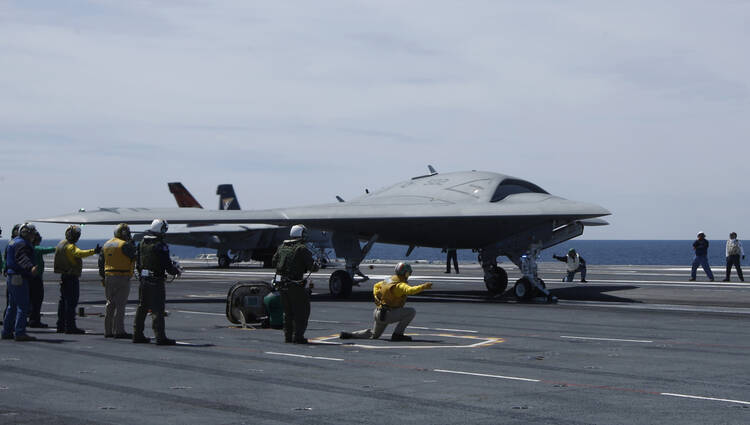Perhaps the worst mistake was killing Osama Bin Laden. According to all the accounts I have read on the expedition, the target was alone, except for some nearby women, unarmed and could have been easily overpowered, arrested and brought home to a military prison and eventually tried, convicted and locked up for life — the living symbol of an evil life and the correctness of the American justice system. But killing him was easier, and it had the public relations benefit of making President Obama look tough and decisive.
Now for some years President Obama seems to take satisfaction in droning human beings, blowing up targets described as “suspected terrorists,” also with the “near certainty” that no civilians would be killed or injured. The terminology makes the killing appear “surgical,” medical language applied to a murder, as if something noble is going to take place. Since when does the law grant the killing of people merely “suspected” of having committed a crime? Does a court send even convicted men and women to the electric chair when it is “nearly certain” that they committed a crime?
As a matter of fact, the recently disclosed exercise, which killed six people, two of whom, an American and an Italian, were hostages, violated the principles President Obama laid down in 2013 when he announced that the C.I.A. would no longer conduct what are called “signature strikes”—attacks based merely on the suspicious behavior of the persons targeted without actually knowing who they are—after 2014 when American “combat operations” in Afghanistan were scheduled to end.
The Washington Post’s Eugene Robinson describes the process well: “This is, put simply, war by assassination. Drone attacks have a chillingly antiseptic nature: One minute, the targeted individuals are going about their business, nefarious or otherwise. Perhaps they notice the sound of an aircraft overhead. The drone’s operator, sitting at a console that may be thousands of miles away, presses a button. Kaboom.”
That kaboom has assassinated more than 2,400 persons across Pakistan, Yemen and Qureshi in five years. At least 273 were civilians. The list includes 38 Westerners, 10 of whom were American. The 2011 individual killing that struck me as the least justifiable was the drone attack on Abdel-Rahman al Awlaki, the teen-aged son of famous target Anwar al Awlaki killed two weeks before. President Obama expressed no regrets. Are the lives of Western civilians somehow worth more than the innocent civilian citizens of the Mideast? This recent killing, for some reason, evoked more sorrow. The president says he takes “full responsibility.” Just what does he mean by that? Will those who ignored his order in 2013 lose their jobs? To “regret” another person’s death to the family of the deceased is soft vocabulary, cheap talk, from one responsible for the death.
Meanwhile it is no surprise to learn that the C.I.A. members who produced the culture of torture are the same ones setting the—and breaking—the guidelines for the drone attacks. Congress apparently couldn’t care less. If President Obama wants what’s left of his reputation for integrity to survive his term in office, he should end drone warfare now.








